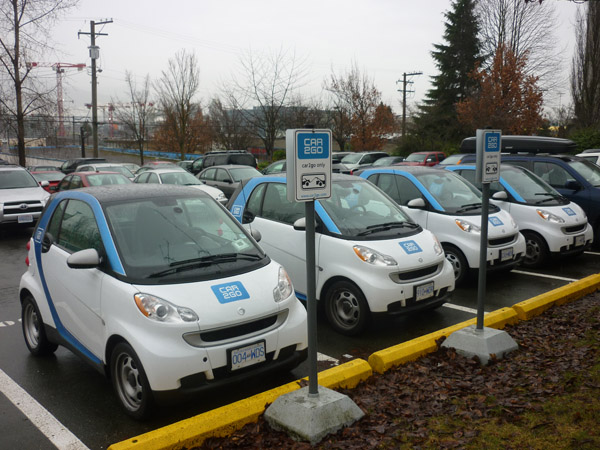Reading about The Unstoppable Rise Of The Share Economy in Forbes Magazine, I get a strange feeling in my belly. There is, on one hand, the automatic delight at seeing the word “share” so prominently featured, as if it were walking down the red carpet on the way to accepting its Oscar, signaling to the world that it finally “made” it. I mean, who can resist the allure of smiling multi-millionaires who “share” their way to fame and fortune or savvy part-time entrepreneurs who “spin scraps into gold” to spend their life chilling on a beach in Costa Rica?
On the other, less star-struck hand, flashes of childhood memories of huddling around a box of crayons with my friends keep interfering with this modern “Who wants to be a billionaire?” version of sharing. “Really?” A perplexed voice keeps popping into my head. “That’s what this whole sharing thing is about — making money and leveraging the biggest advantage for yourself?” What once used to be the most basic human value your parents ever taught you seems to have magically morphed into a well coiffed, profitable, and fashionably cool buzzword for an entire industry.
Don’t get me wrong, I like Airbnb and Zipcar. They are great services that might as a whole conserve a few resources and on an individual basis bring a little more joy into the world. I have no problem that their founders are wealthy and treated like rock stars. I’m just feeling reluctant to hand them the word “sharing” on a golden platter. I mean, really, let’s be honest here — if you have to pay to share something, it’s commonly known in the English language as buying or renting.
The fact that Zipcar just got bought up by Avis just shows how little daylight there is between a traditional car rental and a car share company. Long before sharing was all the rage, we were sharing that Avis Compact with all the German tourists. And what about that lovely Bed & Breakfast near Lake Geneva my girlfriend and I recently stayed at, with the most delightful hosts you could imagine? It wasn’t on Airbnb, but we paid to stay with locals who generously shared with us homemade cake, travel tips, and laughter. What’s to keep them from selling themselves as a house share? Or for that matter, what’s to keep Disneyland from marketing itself as an experience share?
Taken to its logical conclusion, the whole idea of the “share economy” seems pretty redundant. Isn’t the sharing of goods, services, property or experience in exchange for money or other agreed upon currency the very definition of “economy?” Even the idea implied in “share economy” that we would make the best use of existing resources and space isn’t really alien to the boring old economy — airlines don’t call the space on the plane shared by the largest number of passengers “economy” for nothing.
I don’t mean to rain on the parade, but I’m worried that “sharing” is turning into the new “green,” another once well-intentioned word that has become an overused and mostly meaningless marketing gimmick, like Samsung’s recent “We All Share” campaign. I know that making money and clever marketing is the holy grail of capitalism, and one could argue that rebranding rentals as shares might ultimately help to bring a more collaborative attitude into the mainstream, just as driving a hybrid may lead to a deeper ecological understanding or buying a yoga mat could be the gateway into spirituality.
But is this rising tide of popularity and commercialization really going to lift all the smaller boats that carry the more sublime meaning of sharing? Will it make us more generous and compassionate? Inspire us to listen to each other more intently? Come together in the town square more frequently? Commit random acts of kindness?
I don’t have the answer, but I like the questions. Maybe there needs to be a better definition or qualification of the word “sharing” as it relates to its different uses. For example, when everyone started to use the word “Green” in the building industry, the US Green Building Council came out with its LEED ratings system, a framework by which architects and builders can attain different levels of verifiable environmental standards. Could the market-based terrain of peer-to-peer commerce establish a similar scale of sharing, ranging from purely altruistic to purely commercial, perhaps under the Collaborative Consumption umbrella?
Whether the new multi-billion dollar sharing industry becomes more discerning about the use of the word, I don’t have any control over. However, as a consumer, I’m not buying it anymore. Is there anything inherently more noble or environmental about Zipcar than Avis? If there is, I’d like to know. If there isn’t and the difference is simply in price, convenience, and hipness, then why rent a Zipcar for a day if I can get a better deal from Avis and I’m close enough to a pick-up? I guess we’ll come full circle in this brave new collaborative competition once the Avis/Zipcar merger is complete and we start seeing “Avis Car Share” Fiat 500’s on the corner.
In the meantime, whether I’m renting through Airbnb or staying in a hotel, I will approach whoever my hosts are with an open heart and a big smile, knowing that I will be sharing space and essence, whether it is advertised as such or not. And just to play it safe, I will reserve the word “sharing” for my roles as citizen, friend, and neighbor, giving freely of myself, whether it’s things, skills, or time, just because in my world what you give is in the end what you receive.
:::::::
Originally posted at Shareable.net.












Just can’t escape those oxymorons these days. Orwell’s double-speak is alive and well. I saw a “Green” moving service truck in the neighborhood the other day. How is that green?
Another area that has been bugging me lately is the “true story” , “based on actual events” verbage. I’m suspicious they are playing with the truth and rewriting history under the guise of creative license. I wish there were standards like with profanity, nudity, and adult content to inform audiences of just how much of the story being told is in fact true.
BTW” Want to share my bills with me?
As language is just as fluid as the human psyche, we’ll never have any absolute definitions of Green, Sharing, or True Lies, I mean Stories. And this is certainly a good thing, because the constant evolution of meaning and all the confusion and imperfection surrounding it is what makes us human after all. I guess if we had a 100% perfectly defined vocabulary we’d be robots. There would be no greenwashing or political spin, but alas, no poetry or irrationally falling in love either.
I just think that when you’re using a word like “sharing” — which by nature seems more at home in the realm of poetry than exact science — to your own advantage, then you become liable for application of some sort of a metric that others can use and understand.
And of course, I’d love to share your bills, for a small fee slightly above the debit on the bill, of course. 😉
Good post Sven and on the mark. I’m with you on language being co-opted to suit the agenda of others. If billionaires want to share they simply need to agree with the President and the American public about paying their fair share of taxes to help support the world that supported them.
Totally agree with you on that, Al. Another good way for them to show how truly committed they are to sharing the wealth would be to register their businesses as Benefit Corporations or Cooperative.
Thank you Sven for being one of the few out there that perceive the use of language with an open mind. As you said in your comment above”…the constant evolution of meaning and all the confusion and imperfection surrounding it is what makes us human after all”….Yes!
You’re welcome, Naima, and thanks for stopping by. I think in my personal case, the process of learning English as a second language has been very helpful in understanding just how subject to culture and environment our human expression really is. That is, until you get a little deeper into the spiritual realm where the layers of language seem to magically fall away again. I think the best way to navigate is to do both: develop our understanding of consciousness, silence, and boundless creation, and use it to learn to communicate more clearly and kindly in the more dualistic earthly realm of the brain.